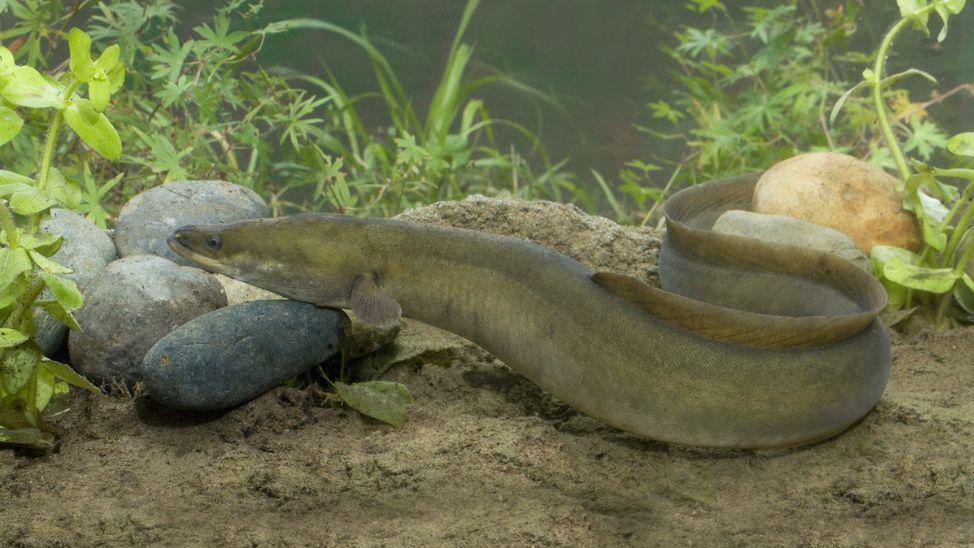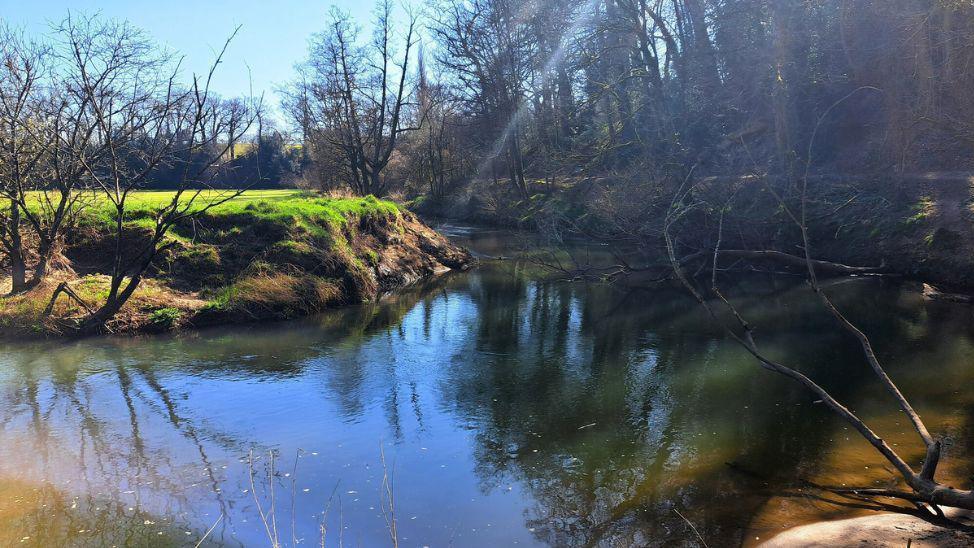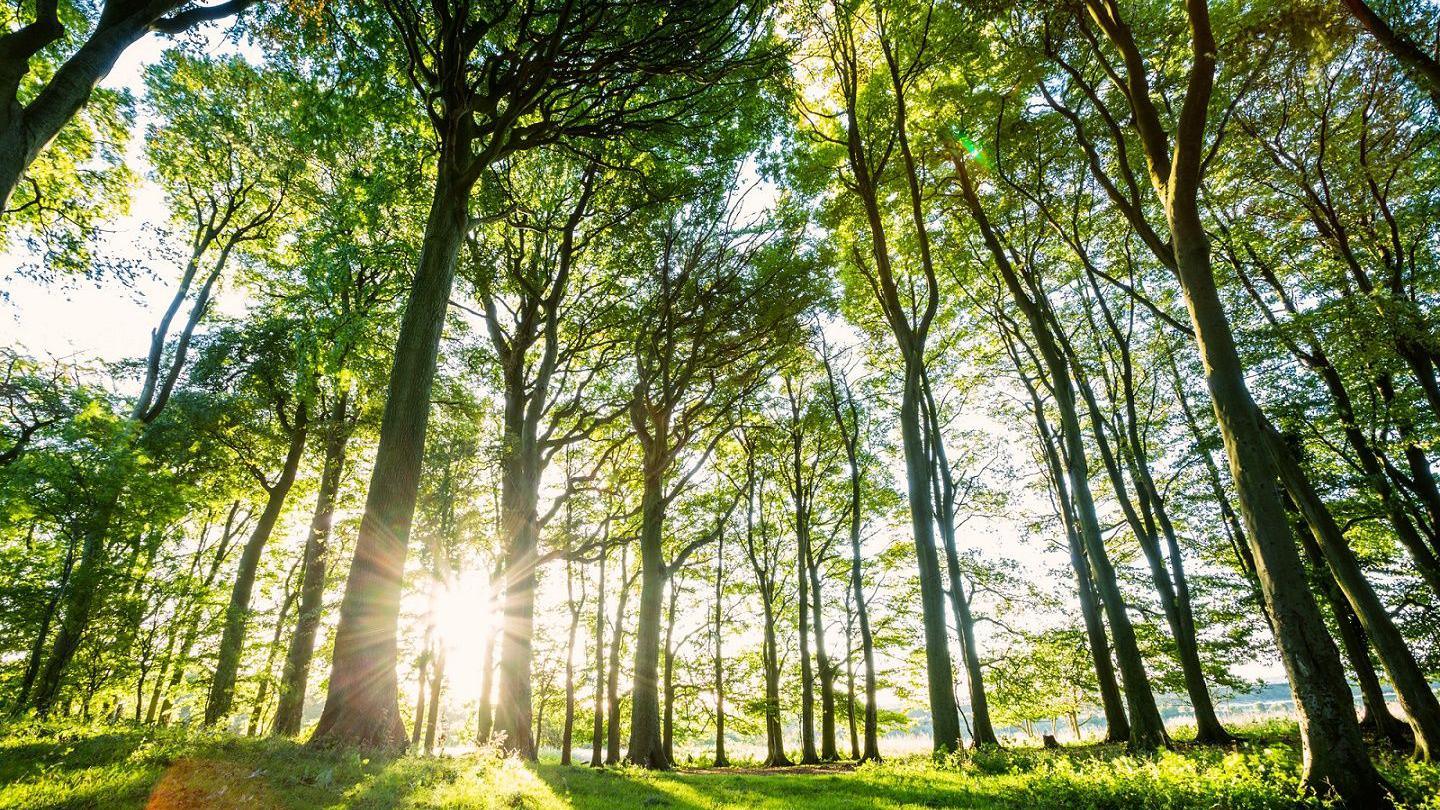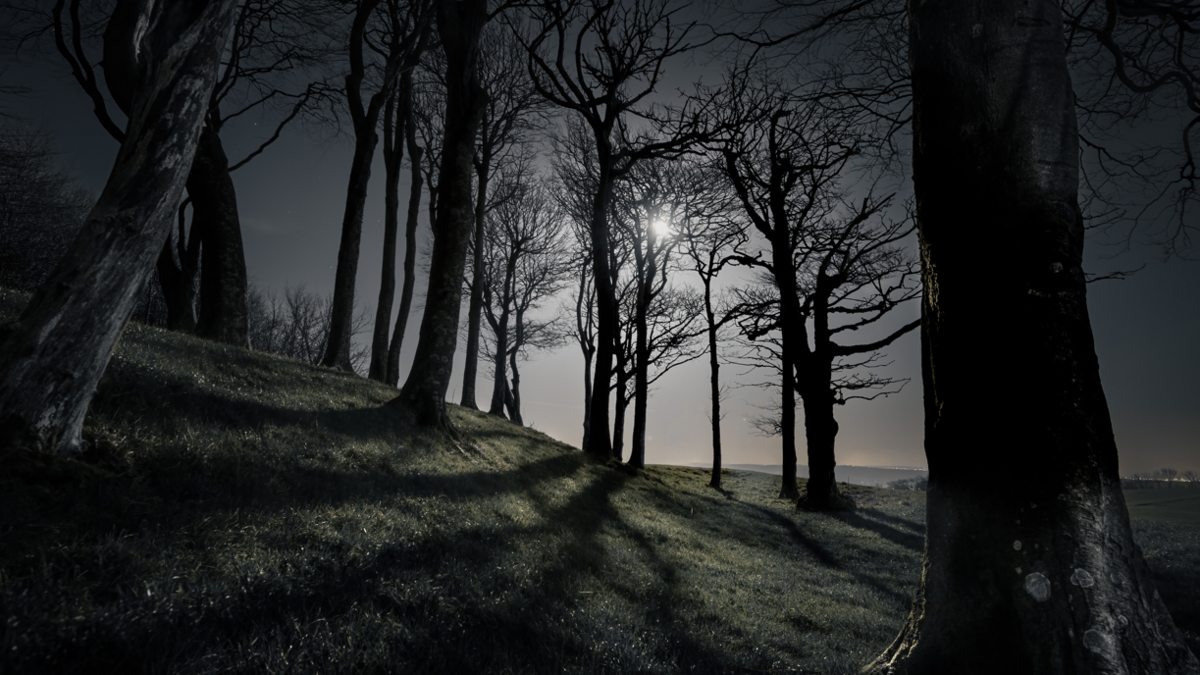'Eel lanes' created in rivers to assist migration

The project includes strips of bristles to help eels manoeuvre upstream
- Published
Dedicated "eel lanes" are to be created in rivers at the South Downs National Park to assist with the migration of the European eel.
The project includes the installation of fish passes created around man-made structures in the rivers which act as a narrow lane of water to provide eels with a route around artificial barriers like dams and weirs.
Strips of bristles, known as eel brushes, are also being added at new water control structures in RSPB Pulborough Brooks and Pagham Harbour to help eels manoeuvre upstream.
"The migration of these eels is quite extraordinary as they undergo several metamorphoses during their lives," a spokesman for the national park said.

The project aims to protect the habitat of the eel in the Rother and Ems rivers
Spawning in the Sargasso Sea, off the coast of Bermuda, the species then drift along the Gulf Stream over the next couple of years.
Upon reaching the English coastline, they use the force of the tides to push themselves upstream to make a home in rivers, including the Rother and Ems.
Once in rivers, the eels grow up to one metre in length and live for up to 20 years.
They then make the 4,000-mile (6,437km) transatlantic journey back to the Sargasso Sea to spawn.
The project has been launched by the park authority, which is working with the Western Sussex Rivers Trust to protect the habitat of the eel in the Rother and Ems rivers.
Aimee Felus, chief executive of the trust, said: "With pollution, sewage and drought all playing a part in the diminishing water quality of our rivers and streams, it's more important than ever that we work together to help protect and enhance these precious habitats for wildlife and humans alike."
Jan Knowlson, biodiversity officer for the South Downs National Park, added: "The eels we have in the national park are truly remarkable and their incredible migration underlines the important connection between our rivers and seas."
Follow BBC Sussex on Facebook, external, on X, external, and on Instagram, external. Send your story ideas to southeasttoday@bbc.co.uk, external or WhatsApp us on 08081 002250.
Related topics
Related stories
- Published9 June

- Published10 February
